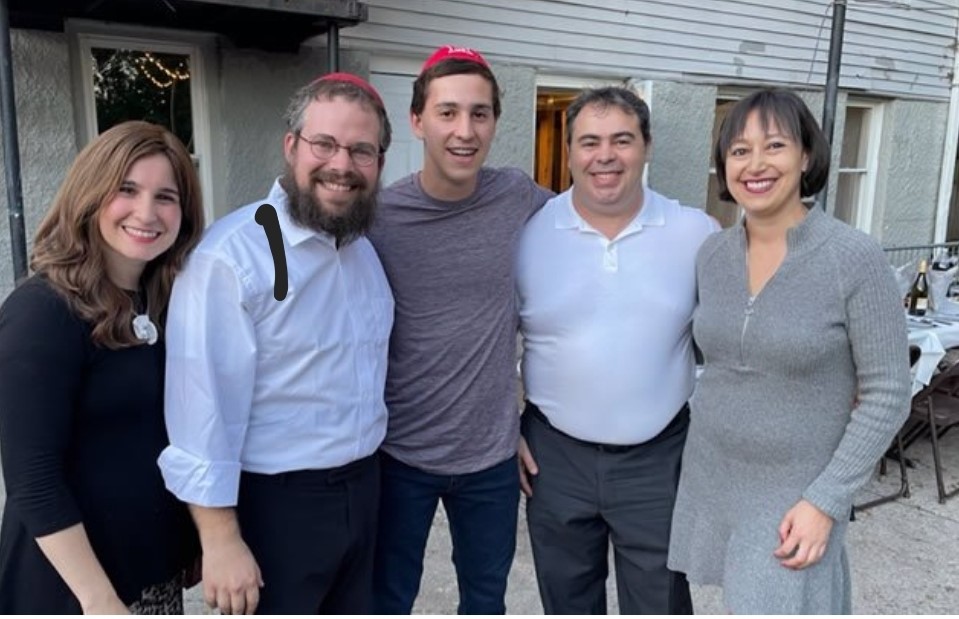Most parents have mixed emotions about the day they drop off their child at a college campus. While for years, they may be anticipating this milestone, there is a strong feeling of nostalgia and worry about this stage of independence. As parents, we pray and hope that our children meet positive people in their new environment.
My friends Irena and Serge, who both immigrated from the former Soviet Union to Los Angeles in their teens, had high hopes and, of course, parental concerns when they dropped their first child, Alan, at the Miami University of Ohio. After helping their son settle into his dorm room, Irena and Serge returned home to the West Coast, some 2,000 miles away from the university. They did not know at the time that Alan was not without “family” close by.
My friends grew up under the Communist regime and weren’t familiar with their heritage. Religious observance was not a big part of their daily lives. Nevertheless, Irena and Serge did marry under a chuppah and held brit milah ceremonies for both of their sons.
During the summer of 2021, before the start of his first semester in college, Alan was offered an opportunity to work as a counselor at a Jewish Russian overnight camp. He was excited about the offer and looking forward to learning more about his heritage. While in camp, Alan became friendly with Maggie, a co-counselor, and an incoming junior at Miami University of Ohio.
Two days after camp ended, Alan and his parents boarded a plane for Cincinnati for Alan to begin his studies. When he arrived at the university, Maggie, who lived off-campus and had a car, offered to help him with errands. She also explained to Alan that Jewish students gathered every Friday night at the Chabad House for great food and good discussions.
That week, together with Maggie, Alan went to his first Shabbat dinner, where he was warmly greeted by Rabbi Yossi and Mushka Greenberg. The Greenbergs serve as Chabad emissaries at the Miami University of Ohio, inspiring and helping Jewish students along their journey. The atmosphere was both heartwarming and inspiring, and Alan connected with the rabbi. Along with other Jewish students, he celebrated Rosh Hashanah with the Chabad family and was beginning to feel more comfortable in his new surroundings.
Then unexpectedly, Alan started to feel sick. Irena remembers, “As the days went by, our son was not getting better. We urged him to see a doctor as soon as possible. My husband and I called the medical center of the university and were told that the first available appointment was days away. We urged Alan to go to Urgent Care, but being that it was off-campus, he needed a ride. Alan wasn’t sure if he wanted to go or wait for an appointment at the university’s medical center. My husband and I were really worried about him.
“Later that day, the rabbi texted our son, asking if Alan would be joining them for Shabbat dinner the next evening. Alan explained that he was not feeling well, and therefore would not be able to attend. The rabbi offered to bring Alan a homemade soup for a ‘taste of home.’ He arrived with a bowl of hot zucchini soup, apologizing that they ran out of chicken-noodle soup, which was in higher demand. My husband and I were completely blown away by this kindness.
“On Friday, the rabbi called again to inquire about Alan’s health. Our son admitted that he wasn’t feeling better, and was waiting for an appointment at the medical center. The rabbi offered to drive Alan to Urgent Care to be seen by a doctor that day. Despite it being just a few hours before Shabbat, Rabbi Greenberg made time for Alan and took him, and afterwards, drove him to a pharmacy to get medications for an ear infection.
“Alan was so grateful and continued to thank the rabbi for his help. In response, Rabbi Greenberg kept assuring him that it was not an imposition, and that he would be happy to help if Alan needed anything else.
“My husband and I also spoke to Rabbi Greenberg and thanked him for taking such good care of our son. He was very easy to talk to and reassured us that helping students who were far away from home is what they do on a regular basis. Rabbi Yossi and his wife, Mushka, explained that their goal is to provide a ‘home away from home.’ The rabbi even gave me his personal number and encouraged me to reach out any time.
“As parents, we felt helpless when we were unable to be there for our child. It is so comforting for us to know that Alan is not alone, and that he has such warm people to turn to!”
When I reached Rabbi Greenberg, he was taken aback by all the attention. “I don’t think my actions were particularly noteworthy. I appreciate Irena’s kind words, but it is really what we do here. My wife and I would do it for any student who needs help. We do what we can in the way that we would want someone to take care of our child. We tend to the students’ physical, emotional, and spiritual health. We are a ‘home away from home’ in a literal and practical sense.”
I once read that the difference between a “thermometer” and a “thermostat” is that a thermometer reports the temperature of a room, while a thermostat creates it. As parents, we continuously worry about our children when we send them into the real world. It is so comforting to know that throughout the world, there are thousands of heart-warming Chabad House thermostats that create an atmosphere of Jewish enthusiasm, positivity, acceptance and unconditional giving.
‘Home Away From Home’ at Miami University – Contemporary Voices (chabad.org)

